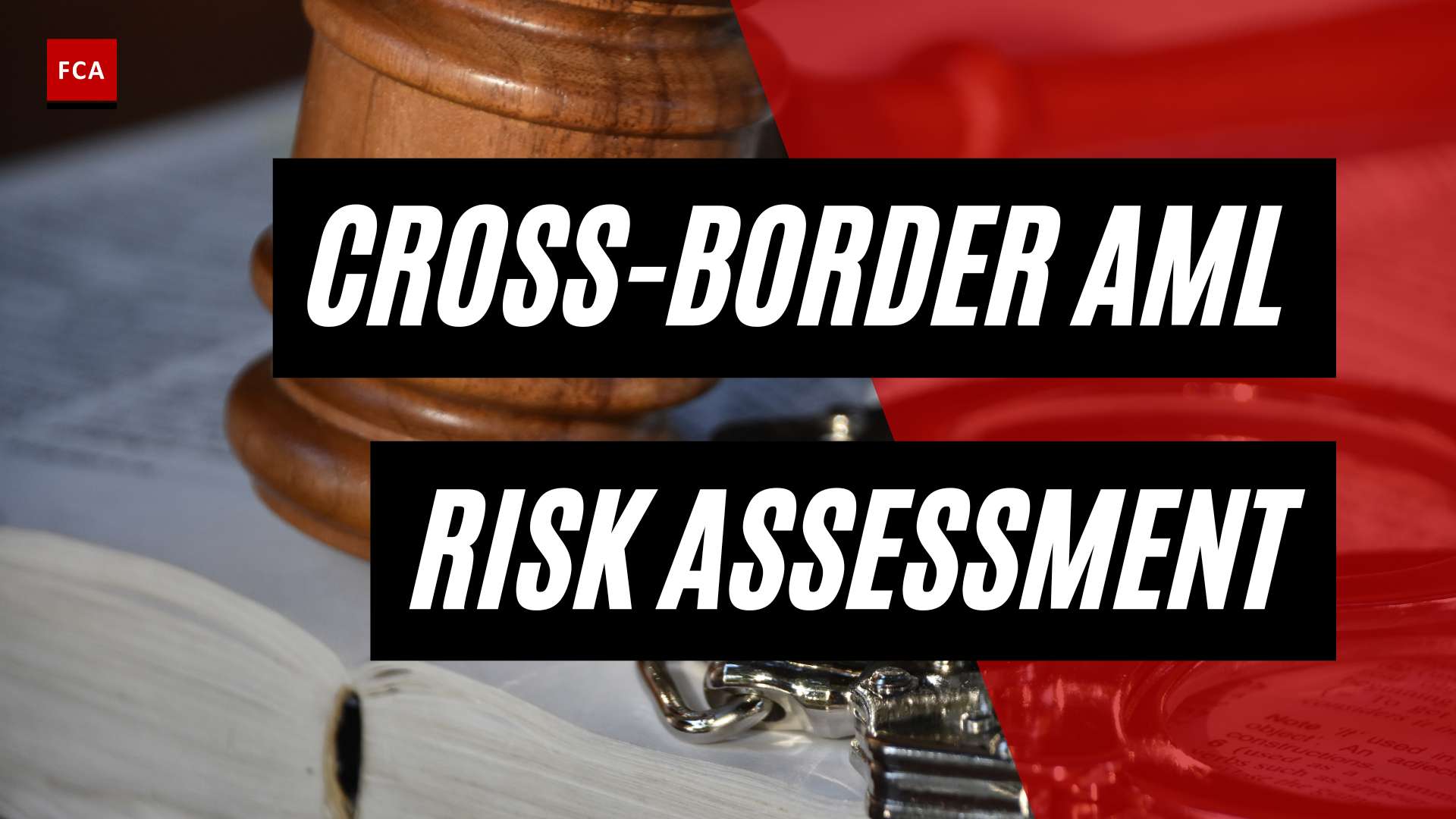The Importance of Anti-Money Laundering Regulation
Financial wrongdoings, such as money laundering and terrorist financing, pose significant threats to the integrity of the global financial system. To combat these illicit activities, anti-money laundering (AML) regulation plays a crucial role. Understanding the threat of financial wrongdoings and the role of AML regulation is essential for professionals working in compliance, risk management, anti-money laundering, and anti-financial crime.
Understanding the Threat of Financial Wrongdoings
Financial wrongdoings encompass a range of illicit activities designed to conceal the origins of illegally obtained funds. Money laundering is a key component of these activities, involving the process of making illegally obtained money appear legitimate. Criminals engage in money laundering to disguise the proceeds of their illegal activities, making it difficult for law enforcement agencies to trace and seize these funds.
The consequences of financial wrongdoings are far-reaching. They undermine the stability of financial systems, facilitate organized crime, and can enable the financing of terrorism. Additionally, money laundering erodes trust in financial institutions and can harm the reputation of countries where illicit funds are laundered.
The Role of AML Regulation in Combatting Financial Crimes
AML regulation plays a vital role in combatting financial crimes by establishing a framework of rules and procedures that financial institutions must follow. These regulations aim to detect and prevent money laundering and terrorist financing activities.
One of the key organizations leading the global effort in setting AML standards is the Financial Action Task Force (FATF). The FATF is an intergovernmental body established to develop and promote policies to combat money laundering and terrorist financing. They provide a set of recommendations, commonly known as the FATF Recommendations, which serve as an international benchmark for AML regulation.
Financial institutions are required to implement robust AML programs to comply with the FATF Recommendations. These programs include customer due diligence, transaction monitoring, and reporting of suspicious activities. By implementing these measures, financial institutions contribute to the global effort in preventing money laundering and terrorist financing.
The importance of AML regulation goes beyond individual countries. Compliance with AML measures is crucial for maintaining the integrity of the international financial system. Failure to adhere to AML requirements can result in severe consequences, including reputational damage, legal penalties, and restrictions on financial transactions.
Understanding the threat posed by financial wrongdoings and the role of AML regulation is essential for professionals in various sectors. By staying informed about the evolving AML landscape and complying with regulatory requirements, individuals and organizations can contribute to a more secure and transparent financial environment.
Introducing the Financial Action Task Force (FATF)
The Financial Action Task Force (FATF) is an inter-governmental organization that plays a pivotal role in the global fight against money laundering, terrorist financing, and other financial crimes. Established in 1989, the FATF serves as a global standard-setter for anti-money laundering (AML) and counter-terrorist financing (CTF) measures.
Overview of the FATF
The FATF is composed of 39 member countries and jurisdictions, along with two regional organizations representing over 200 countries. Its primary objective is to develop and promote policies to combat financial wrongdoings on a global scale.
The FATF operates by setting international standards, conducting assessments, and monitoring the implementation of AML/CFT measures. It also provides guidance and recommendations to member countries to strengthen their regulatory frameworks and enhance their capacity to combat money laundering and terrorist financing.
To ensure effective implementation of AML/CFT measures, the FATF conducts mutual evaluations of member countries. These evaluations assess the country’s compliance with the FATF’s recommendations and identify areas for improvement. Member countries are expected to align their national AML/CFT regimes with the FATF standards and undergo regular evaluations to maintain their standing.
For more information on the FATF’s member countries and their compliance status, you can refer to our article on FATF member countries and FATF mutual evaluations.
Objectives and Functions of the FATF
The FATF has three primary objectives:
-
Develop and promote global AML/CFT standards: The FATF sets out a series of recommendations known as the FATF Recommendations. These recommendations serve as a comprehensive framework for countries to establish effective AML/CFT measures and combat financial wrongdoings.
-
Assess and monitor compliance: The FATF conducts rigorous assessments to evaluate the extent to which member countries have implemented the FATF Recommendations. These assessments, known as mutual evaluations, help identify areas where countries need to strengthen their AML/CFT regimes.
-
Foster global cooperation: The FATF promotes international cooperation and collaboration among member countries, regional organizations, and other stakeholders. This cooperation includes sharing information, expertise, and best practices to combat money laundering, terrorist financing, and related crimes effectively.
The FATF’s efforts to combat financial wrongdoings extend beyond its member countries. It actively engages with non-member jurisdictions to encourage them to adopt and implement the FATF Recommendations. The FATF also maintains a grey list and blacklist of non-compliant jurisdictions, putting pressure on them to enhance their AML/CFT efforts.
As the landscape of financial crimes evolves, the FATF continues to adapt its strategies and recommendations. It recognizes the importance of technology and innovation in combating money laundering and terrorist financing, and it provides guidance on emerging areas such as virtual assets to address these evolving threats.
The FATF’s work is crucial in promoting a coordinated global response to financial wrongdoings. By establishing international standards and fostering cooperation among countries, the FATF plays a critical role in safeguarding the integrity of the global financial system.
The FATF Blacklist
The Financial Action Task Force (FATF) plays a crucial role in combatting financial wrongdoings and promoting global anti-money laundering (AML) efforts. As part of its mandate, the FATF maintains a list known as the FATF Blacklist, which is an important tool in identifying jurisdictions with strategic deficiencies in their AML and counter-terrorist financing (CTF) regimes.
What is the FATF Blacklist?
The FATF Blacklist, also referred to as the «FATF Non-Cooperative Countries or Territories (NCCTs) list,» is a compilation of jurisdictions that the FATF identifies as having significant weaknesses in their AML/CTF frameworks. Inclusion on the FATF Blacklist signifies that these jurisdictions pose a high risk to the integrity of the global financial system due to their failure to implement effective measures against money laundering and terrorist financing.
The FATF Blacklist serves as a tool to raise awareness and encourage action by the international community to address the identified deficiencies. It aims to prompt blacklisted jurisdictions to take immediate steps to strengthen their AML/CTF regimes and align them with international standards, as outlined in the FATF’s Recommendations. The ultimate goal is to promote a more secure and transparent global financial system.
Criteria for Inclusion in the FATF Blacklist
The FATF follows a comprehensive and rigorous assessment process before adding jurisdictions to the Blacklist. The criteria for inclusion are based on a set of core standards and indicators that help determine the level of effectiveness in combating money laundering, terrorist financing, and related threats. Some key factors considered for inclusion in the FATF Blacklist include:
- Legal and Institutional Framework: The strength and effectiveness of a jurisdiction’s legal and institutional framework to prevent and combat money laundering and terrorist financing activities.
- Regulatory Measures: The adequacy of regulations, guidelines, and supervisory mechanisms in place to ensure compliance with AML/CTF obligations.
- International Cooperation: The level of cooperation and engagement demonstrated by the jurisdiction with international counterparts in combating cross-border money laundering and terrorist financing.
- Risk Assessment and Mitigation: The jurisdiction’s ability to conduct comprehensive risk assessments and implement risk-based measures to identify, assess, and mitigate money laundering and terrorist financing risks.
- AML/CTF Supervision and Enforcement: The effectiveness of the jurisdiction’s supervisory and enforcement authorities in overseeing compliance with AML/CTF regulations and taking appropriate actions against non-compliance.
It’s important to note that inclusion in the FATF Blacklist can have serious consequences for the affected jurisdictions, including reputational damage, limited access to international financial services, and increased scrutiny from the global community. Consequently, jurisdictions on the FATF Blacklist are strongly encouraged to work towards addressing the identified deficiencies to regain international credibility and restore the integrity of their financial systems.
The FATF Blacklist is just one aspect of the broader efforts by the FATF and its member countries to combat money laundering and terrorist financing. To learn more about the FATF’s initiatives and the global fight against financial wrongdoings, explore our FATF Money Laundering section.
Impact of Being Blacklisted
Being blacklisted by the Financial Action Task Force (FATF) can have significant consequences for countries that fail to comply with anti-money laundering (AML) and counter-terrorism financing (CTF) measures. Let’s explore the repercussions for blacklisted countries and the measures they can take to be removed from the blacklist.
Consequences for Blacklisted Countries
When a country is added to the FATF blacklist, it faces various consequences that can negatively impact its financial reputation and global standing. Estas consecuencias incluyen:
-
Financial Restrictions: Blacklisted countries may face difficulties in accessing international financial systems. This can hinder their ability to conduct international transactions, receive foreign investments, and engage in global trade. Financial institutions may also exercise caution when dealing with entities from blacklisted countries, resulting in limited banking relationships and increased scrutiny.
-
Economic Impact: The blacklisting of a country can lead to a loss of investor confidence, reduced foreign direct investment, and economic instability. The lack of access to international financial systems may hinder economic growth and development.
-
Reduced International Cooperation: Blacklisted countries may face challenges in collaborating with other nations and international organizations on matters of financial and security cooperation. This can hinder their ability to address transnational financial crimes effectively.
-
Damage to Reputation: Being blacklisted by the FATF can tarnish a country’s reputation and raise concerns among global stakeholders. It signals potential weaknesses in a country’s AML and CTF frameworks, making it less attractive for international business and partnerships.
Measures to Be Taken to Be Removed from the Blacklist
To be removed from the FATF blacklist, blacklisted countries must take specific measures and demonstrate substantial progress in addressing the identified deficiencies. These measures include:
-
Legal and Regulatory Reforms: Blacklisted countries must enact and enforce robust AML and CTF laws that align with the FATF recommendations. They must strengthen their legal frameworks to criminalize money laundering, terrorist financing, and related offenses. Implementing effective preventive measures, such as customer due diligence and suspicious transaction reporting, is crucial.
-
Enhanced Supervision and Monitoring: Blacklisted countries need to establish competent authorities responsible for supervising and regulating financial institutions. These authorities should conduct regular risk assessments, perform comprehensive evaluations of financial institutions’ AML and CTF compliance, and take appropriate enforcement actions when necessary.
-
International Cooperation: Blacklisted countries must actively engage in international cooperation, sharing information and collaborating with other countries and relevant international organizations. This includes exchanging intelligence on suspicious transactions, supporting investigations, and participating in joint operations to combat financial crimes.
-
Capacity Building: Blacklisted countries should invest in capacity building efforts to enhance their AML and CTF capabilities. Esto incluye capacitar a los organismos encargados de hacer cumplir la ley, las instituciones financieras y las partes interesadas pertinentes sobre las mejores prácticas de AML y CTF. La asistencia técnica de la comunidad internacional puede desempeñar un papel fundamental en el apoyo a estas iniciativas de fomento de la capacidad.
Al tomar estas medidas y demostrar un progreso sustancial, los países incluidos en la lista negra pueden trabajar para ser eliminados de la lista negra del GAFI. Es importante que los países den prioridad a la aplicación efectiva de las medidas de lucha contra el blanqueo de capitales y la financiación del terrorismo para salvaguardar sus sistemas financieros, proteger sus economías y contribuir a los esfuerzos mundiales contra las irregularidades financieras.
Esfuerzos mundiales contra las irregularidades financieras
Los esfuerzos para combatir las irregularidades financieras y el lavado de dinero no se limitan a los países individuales. La cooperación entre los países y las organizaciones internacionales es crucial para hacer frente a estos desafíos mundiales. En esta sección, exploraremos la importancia de la cooperación y destacaremos tanto las historias de éxito como los desafíos en la lucha contra las irregularidades financieras.
Cooperación entre países y organizaciones internacionales
La cooperación entre los países desempeña un papel fundamental en la lucha eficaz contra las irregularidades financieras. Permite el intercambio de información, inteligencia y mejores prácticas, fomentando un enfoque coordinado para detectar y prevenir actividades de lavado de dinero. Las organizaciones internacionales, como el Grupo de Acción Financiera Internacional (GAFI), facilitan esta colaboración al proporcionar una plataforma para que los países miembros trabajen juntos.
El GAFI, una organización intergubernamental, ha estado a la vanguardia de los esfuerzos mundiales contra el lavado de dinero y el financiamiento del terrorismo. A través de sus recomendaciones y directrices, el GAFI establece normas internacionales para las medidas contra el blanqueo de capitales y la financiación del terrorismo. Se espera que los países miembros implementen estos estándares, que incluyen la realización de evaluaciones mutuas para evaluar su cumplimiento con los requisitos del GAFI. Las jurisdicciones que no cumplen pueden enfrentar consecuencias, como ser incluidas en la lista gris del GAFI.
Para mejorar aún más la cooperación, organizaciones internacionales como la Organización de las Naciones Unidas (ONU) y el Banco Mundial colaboran con el GAFI y otras entidades para fortalecer los esfuerzos mundiales contra el blanqueo de capitales. Al compartir experiencia, recursos y asistencia técnica, estas organizaciones contribuyen a fortalecer la capacidad de los países para combatir eficazmente las irregularidades financieras.
Casos de éxito y desafíos
La cooperación entre los países y las organizaciones internacionales ha dado resultados notables en la lucha contra las irregularidades financieras. Las investigaciones conjuntas y el intercambio de información de inteligencia han dado lugar a la identificación y el enjuiciamiento de personas y redes delictivas implicadas en el blanqueo de capitales y la financiación del terrorismo. Estos esfuerzos de colaboración han interrumpido los flujos financieros ilícitos y han ayudado a salvaguardar la integridad del sistema financiero mundial.
Sin embargo, persisten los desafíos en los esfuerzos mundiales contra las irregularidades financieras. Uno de esos desafíos es la disparidad en los marcos de lucha contra el blanqueo de capitales y la aplicación de la ley en las diferentes jurisdicciones. A medida que las transacciones financieras cruzan cada vez más las fronteras, la armonización de las regulaciones de AML y la garantía de una implementación coherente se vuelven cruciales. Además, las tecnologías emergentes y la evolución de los métodos utilizados por los delincuentes plantean nuevos desafíos que requieren una adaptación e innovación constantes.
Para hacer frente a estos desafíos, los esfuerzos en curso se centran en el fortalecimiento de la cooperación internacional, el intercambio de conocimientos y experiencia, y la promoción de un enfoque basado en el riesgo de la lucha contra el blanqueo de capitales. Las evaluaciones periódicas de riesgos y las actualizaciones oportunas de las regulaciones AML son esenciales para mantenerse al día con la evolución de las amenazas.
A medida que el panorama mundial continúa evolucionando, la colaboración y la cooperación siguen siendo componentes esenciales en la batalla en curso contra las irregularidades financieras. Al trabajar juntos, los países y las organizaciones internacionales pueden fomentar un marco mundial de lucha contra el blanqueo de capitales más sólido e interconectado, aumentando la eficacia de los esfuerzos para combatir el blanqueo de capitales y proteger la integridad del sistema financiero mundial.
El futuro de la regulación AML
A medida que continúa la lucha contra los delitos financieros, el campo de la regulación contra el lavado de dinero (AML) está evolucionando para mantenerse al día con el panorama siempre cambiante de las irregularidades financieras. Esta sección explora la evolución de las estrategias para combatir los delitos financieros y el papel de la tecnología y la innovación en la configuración del futuro de la regulación de la lucha contra el blanqueo de capitales.
Evolución de las estrategias para combatir los delitos financieros
Para adelantarse a los delincuentes financieros sofisticados, los reguladores de lucha contra el blanqueo de capitales y las instituciones financieras están adaptando continuamente sus estrategias y enfoques. Estas son algunas de las estrategias clave en evolución en la lucha contra los delitos financieros:
-
Enfoque basado en el riesgo: Un enfoque basado en el riesgo está ganando protagonismo en la regulación de la lucha contra el blanqueo de capitales. Implica la identificación y evaluación de los riesgos asociados con el lavado de activos y el financiamiento del terrorismo. Al concentrar los recursos en áreas de alto riesgo, los reguladores y las instituciones pueden asignar sus esfuerzos de manera más eficaz y eficiente.
-
Diligencia debida reforzada: Se están implementando medidas de diligencia debida reforzadas para garantizar una comprensión más profunda de los clientes y sus transacciones. Esto incluye la recopilación de información más completa sobre los clientes, la realización de un seguimiento continuo y la implementación de procedimientos más estrictos de Conozca a su cliente (KYC).
-
Intercambio de información: La colaboración y el intercambio de información entre los países, las instituciones financieras y los organismos reguladores son vitales en la lucha contra los delitos financieros. Mediante el intercambio de inteligencia, mejores prácticas e informes de actividades sospechosas, las partes interesadas pueden mejorar su capacidad para detectar y prevenir actividades de lavado de dinero y financiamiento del terrorismo.
-
Avances tecnológicos: El uso de tecnologías avanzadas, como la inteligencia artificial (IA), el aprendizaje automático y el análisis de datos, está revolucionando el campo de la regulación de la lucha contra el blanqueo de capitales. Estas tecnologías pueden ayudar a identificar patrones, detectar anomalías y automatizar los procesos de cumplimiento, mejorando significativamente la eficacia y la eficiencia de los esfuerzos de lucha contra el blanqueo de capitales.
El papel de la tecnología y la innovación
La tecnología y la innovación están impulsando avances significativos en la regulación de la lucha contra el blanqueo de capitales. Estas son algunas áreas clave en las que la tecnología está desempeñando un papel crucial:
-
Monitoreo de transacciones: Los sistemas avanzados de monitoreo de transacciones utilizan algoritmos de IA y aprendizaje automático para analizar grandes volúmenes de datos en tiempo real. Estos sistemas pueden detectar actividades sospechosas, identificar patrones y generar alertas para una mayor investigación.
-
KYC y selección de clientes: La tecnología se está utilizando para agilizar y automatizar el proceso KYC, haciéndolo más eficiente y preciso. Las herramientas automatizadas de selección de clientes pueden verificar rápidamente la información de los clientes con varias bases de datos y listas de seguimiento para identificar riesgos potenciales.
-
Tecnología Blockchain: La tecnología Blockchain tiene el potencial de revolucionar la regulación AML al proporcionar un libro de contabilidad transparente e inmutable para las transacciones financieras. Puede mejorar la trazabilidad de los fondos y facilitar el intercambio de información entre diferentes entidades.
-
Tecnología regulatoria (RegTech): Están surgiendo soluciones RegTech para ayudar a las instituciones financieras a cumplir con las regulaciones AML de manera más efectiva. Estas soluciones aprovechan la tecnología para automatizar los procesos de cumplimiento, supervisar las transacciones y garantizar el cumplimiento normativo.
Al adoptar estrategias en evolución y aprovechar la tecnología y la innovación, la regulación AML se está volviendo más sólida y efectiva en la lucha contra los delitos financieros. Sin embargo, es importante lograr un equilibrio entre aprovechar la tecnología y garantizar la privacidad y seguridad de los datos. A medida que el panorama continúa evolucionando, los reguladores de AML y las instituciones financieras deben mantenerse atentos y adaptar sus enfoques para mantenerse un paso por delante de los delincuentes financieros.








